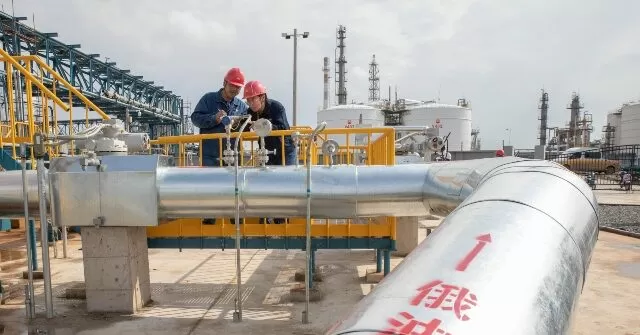Chinese leaders are facing a tough decision regarding the Power of Siberia 2 gas pipeline, a project that has been stalled for some time now. The pipeline, which would bring large quantities of Russian natural gas to China, has been put on hold due to the ongoing conflict between the United States and Iran. This has caused Beijing to become increasingly nervous about relying too heavily on the volatile Middle East for its energy needs.
The Power of Siberia 2 gas pipeline is a crucial project for China’s energy security. The country’s rapid economic growth has led to a significant increase in demand for fossil fuels, and China has been looking for reliable and sustainable sources of energy to meet this demand. The pipeline, which is expected to deliver up to 38 billion cubic meters of natural gas per year, would go a long way in fulfilling China’s energy requirements.
However, with tensions rising between the US and Iran, China is facing a dilemma. On one hand, the country needs to secure its energy supplies, but on the other hand, it does not want to be caught in the crossfire of a potential conflict in the Middle East. China’s reliance on the region for its energy needs has increased significantly in recent years, with a large portion of its oil and gas imports coming from the Middle East.
The US-Iran conflict has put China in a difficult position. With the US imposing sanctions on Iran, China’s energy supplies from the country have been threatened. China is one of the biggest buyers of Iranian oil, and any disruption in the supply could have a significant impact on its economy. This has made Beijing reassess its energy strategy and consider alternative sources of energy.
One such alternative is the Power of Siberia 2 gas pipeline. The project was initially put on hold due to disagreements over pricing between China and Russia. However, with the current situation in the Middle East, Chinese leaders are reconsidering the project. The pipeline would not only provide a stable and reliable source of natural gas for China but also reduce its dependence on the volatile Middle East.
Moreover, the Power of Siberia 2 gas pipeline would also have a positive impact on the environment. Natural gas is a cleaner and more environmentally friendly alternative to coal, which is currently the main source of energy in China. By diversifying its energy sources, China can reduce its carbon footprint and work towards achieving its climate goals.
The potential benefits of the Power of Siberia 2 gas pipeline are not lost on Chinese leaders. They understand the importance of securing the country’s energy supplies and reducing its reliance on the Middle East. However, they also need to carefully consider the economic and political implications of such a decision.
China and Russia have been working closely to resolve any issues surrounding the project, and it is expected that an agreement will be reached soon. Once the project is back on track, it will not only benefit China and Russia but also other countries in the region. The pipeline has the potential to create a new energy corridor, connecting China, Russia, and other Central Asian countries.
In conclusion, the current Iran conflict has highlighted the need for China to diversify its energy sources. The Power of Siberia 2 gas pipeline is a crucial project that would not only provide a stable and reliable source of natural gas for China but also reduce its dependence on the volatile Middle East. Chinese leaders are reconsidering the project and working towards finding a solution that is beneficial for all parties involved. With the project back on track, China can continue its economic growth while also promoting a cleaner and more sustainable future.

